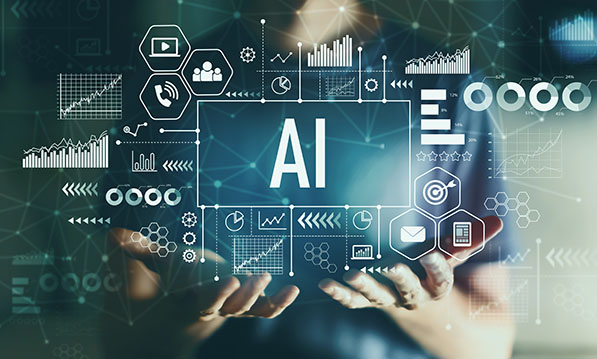Artificial intelligence (AI) — once only in science fiction and Hollywood movies — is a prevalent tool today in manufacturing, healthcare, marketing and education. Employers are increasingly using AI to assist with employment decisions and tasks like hiring, monitoring job performance, and evaluating pay or promotions. The Equal Employment Opportunity Commission (EEOC) is the latest government agency to release technical assistance guidance to prevent AI’s simulation of human decision-making from violating well-established civil rights laws.
As part of its Artificial Intelligence and Algorithmic Fairness Initiative, which started in 2021 with a goal of ensuring that software used in hiring or employment decisions complies with federal civil rights laws, the EEOC recently released Assessing Adverse Impact in Software, Algorithms, and Artificial Intelligence Used in Employment Selection Procedures Under Title VII of the Civil Rights Act of 1964. Focusing on Title VII protections, this technical assistance document provides some guidance on preventing discrimination against applicants and workers during algorithm-generated “selection procedures” — procedures an employer uses to make employment decisions such as hiring, promotion and firing.
It builds on previously released guidance — the EEOC’s The Americans with Disabilities Act and the Use of Software, Algorithms, and Artificial Intelligence to Assess Job Applicants and Employees and the U.S. Department of Justice’s (DOJ) Algorithms, Artificial Intelligence, and Disability Discrimination in Hiring — which dealt with the Americans with Disabilities Act (ADA) and how to prevent disability discrimination during algorithmic decision-making. In addition, the EEOC and DOJ had released a joint pledge to implement enforcement standards to prevent discrimination and bias in automated systems.
The EEOC’s new resource provides employers with some direction on how to ensure AI-generated selection methods and algorithms align with civil rights laws by:
- Defining central terms including “software,” “algorithm” and “AI;”
- Discussing Title VII protections, including defining “disparate impact” and “adverse impact” discrimination; and
- Providing answers to questions about how Title VII applies to the use of AI in employment decisions to assist employers in evaluating whether AI systems may have an adverse or disparate impact on a basis prohibited by Title VII.
The questions and answers section addresses issues such as:
- Using algorithmic decision-making tools as employee selection tools;
- Evaluating the use of algorithmic decision-making tools in the same way as traditional selection procedures for determining if it creates an adverse impact on applicants or employees;
- Clarifying that employers are still responsible under Title VII for use of algorithmic decision-making tools even if the tools are designed or administered by another entity;
- Defining “selection rate” and the “four-fifths rule,” in the AI context; and
- Discussing how employers should respond if they discover the use of an algorithmic decision-making tool has an adverse impact on a protected class.
This guidance is another helpful resource for employers who use AI or are considering using it for their employment decision-making. The EEOC encourages employers to conduct an ongoing self-analysis to determine whether they are using technology in a way that could result in discrimination. Employers should review this guidance and consult legal counsel with any specific questions on their employment practices.
Sarah Woolston, Employment Law Counsel/Subject Matter Expert
CalChamber members can read more about Title VII and Laws Prohibiting Discrimination in the HR Library. Not a member? Learn more about how HRCalifornia can help you.
